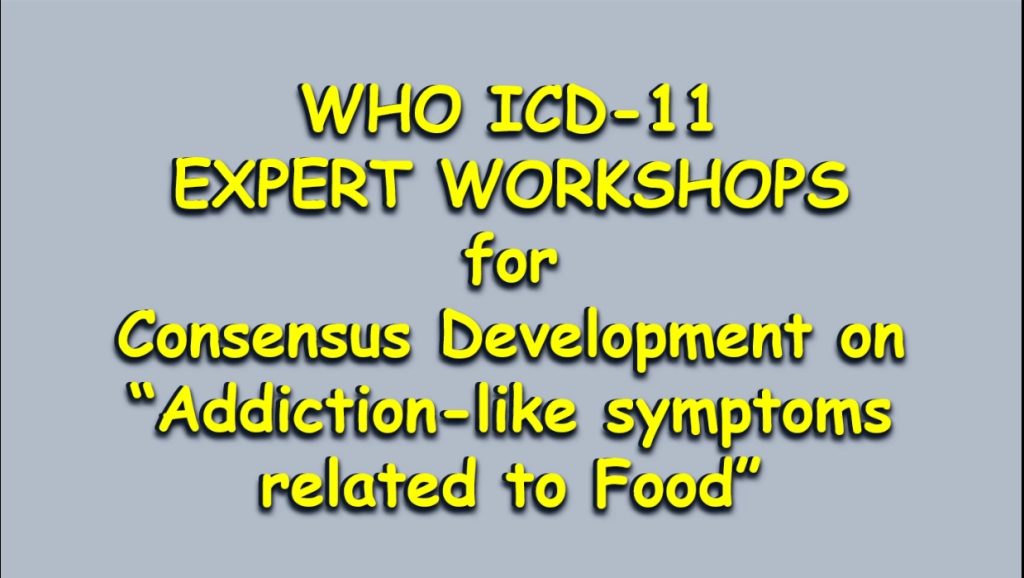Dysfunctional Displacement
A New Terminology for Addiction

WHO ICD-11 Expert Workshop for Consensus Development on “Addiction-like symptoms related to Food” Image courtesy Robert A. Pretlow, still from presentation, used with permission.
The World Health Organization recently facilitated a series of workshops around “Addiction-like symptoms related to food.” They sidestep the term “food addiction,” and for good reason. Our previous post on AddictionNews used the term “eating addiction,” rather than food addiction.
One indicator that it is the behavior that becomes addictive – not the food itself – is that the food doesn’t matter to a majority of overeaters; they are capable of binging on just about anything. Another indicator is the lack of obesity in the natural world, unless animals are exposed to high pleasure food cues like with pet “treats.”
These are some of the findings revealed in a presentation by Dr. Robert A. Pretlow for the WHO Expert Workshops for Consensus Development on Addiction-Like Symptoms Related to Food. The cues stack up in highly processed foods, Dr. Pretlow says, targeting multiple sensory systems with rewarding stimuli. But the addiction is not in the food but in the consumer.
That is why so many addictions have the same signature. Gambling addiction, food addiction, alcohol addiction, drug addiction – even addiction to sex or pornography – are “dysfunctional displacement,” says Dr. Pretlow. They are stress gone awry. Unless the underlying factors are resolved or avoided, the problems will continue.
The good news is that people can and do break the bonds of addiction all the time. They learn to manage displacement in ways that are socially acceptable and less damaging physically. Millions of people have successfully quit tobacco addiction, for example, and they live longer, healthier lives as a result. Millions more have successfully given up drinking alcohol. It’s not easy, but it’s not impossible either as long as the motivation is considered as well as the medium.
Written by Steve O’Keefe. Published November 17, 2023.
Sources:
WHO International Classification of Diseases, 11th Revision
“Expert Workshops for Consensus Development on Addiction-Like Symptoms Related to Food,” Presentation for WHO by Robert A. Pretlow, September 12, 2023
“Smoking Cessation: Fast Facts,” Centers for Disease Control, September 25, 2023
“Giving Up Alcohol Changed My Life,” Entrepreneur, January 13, 2023
Image courtesy Robert A. Pretlow, still from presentation, used with permission
Image Copyright: https://www.123rf.com/profile_inspirestock





6 COMMENTS